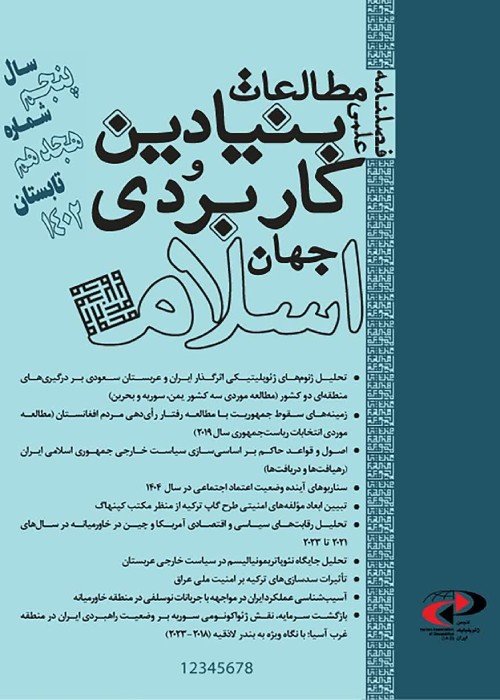A Deleuzian Reading of the System of Paranoid Tyranny in North Africa and the Emergence of Desire in the Arab Spring Developments (Case Study: Egypt, Tunisia, Libya)
The Arab Spring marked a new chapter in the development of the Middle East, with significant changes occurring in the socio-political structures of some Arab countries. During the Arab Spring, the long-standing tyranny in the Arab world was challenged, and the disaffected masses expressed their discontent through continuous street and revolutionary protests. The analysis of these uprisings is psychologically plausible. The dissatisfied masses of the Arab world challenged the symptomatic system of long-standing Arab tyranny, creating a symptom with change and demanding it from the sphere of power. However, these protests were not fundamental and emerged more in the form of a barren political coalition, positively demonstrating the nature of the social and all-encompassing revolution.
In this article, we want to investigate and analyze the process of political and social uprising during the Arab Spring against the authoritarian system by using Gilles Deleuze's theory. The hypothesis is that the disaffected masses in the Arab world, by expressing their desire to participate in their political and social destiny, presented a syndrome contrary to the symptomatic system of authoritarianism ruling in the Arab countries, and in the practical field, they engaged in superficial political action in the form of a political revolution to realize the desire to turn to political participation. Various researches have been conducted on the Arab Spring uprising, most of which have examined political, social and economic factors from domestic, regional and global perspectives. In this article, emphasizing the psychoanalytical analysis of this general movement in the Arab world, we want to present a different reading with the aforementioned works. Therefore, we examine the developments of the Arab Spring in the countries of Egypt, Libya, and Tunisia.
The main question of this study is: What is the process of diversity and change in North African countries due to the Arab Spring, and what is the path of the politics of desire for power? Our hypothesis is that the paranoid structure of the authoritarian system in the Arab world is the main obstacle to the establishment of democratic order in these societies. This article intends to analyze and study the evolution of the Arab Spring using the theory of Gilles Deleuze.
The movements and uprisings of the Arab Spring since 2011 led to the dominant order and the symptoms of paranoid tyranny of the involved societies, experiencing severe institutional and functional challenges. In Arab societies, signs such as closed political culture, weak participatory processes, systematic administrative corruption, sick bureaucracies, severe economic challenges had always weakened civil society and social forces. With the arrival of trends and prospects of globalization and new tools such as media and virtual networks to the societies involved, their dominant order changed. In such a way that the political arena in these countries underwent diversity and discourse transformation, or according to Deleuze's thought, the paranoid pole was drawn into strategic challenges by the activated schizo pole, whose revolutionary actions were aimed at change and desire to become. The Arab Spring movements in a new reading were revolutions in cultural necessity. A culture that suffered from tyranny, repression, corruption, inefficiency, and a revolutionary and cultural movement could lead such an authoritarian cultural order from the paranoid pole to the schizo and transformational pole. In other words, the social demands in the Arab Spring movements were based on the transition to democracy as a discursive and political development. A development that could change the politics in these countries. But these uprisings could not make the transition from authoritarianism to democracy successfully due to the lack of a single leadership, the lack of an organized ideology, the superficiality of the movements, and the lack of a structural alternative, and led to the reproduction of authority and domination in new forms. The reason for that was the rhizomatic nature of its revolutionary movement and the lack of a single organization. In general, these three strategies for change in the policy arena of the discussed countries are significant for diversity and transformation: 1. Using civil capacities and platforms to deal with challenges and threats and to create a democratic and capable civil society; 2. Dealing intelligently with threats according to their internal structure 3. Social empowerment of citizens for efficient institutional social changes.
- حق عضویت دریافتی صرف حمایت از نشریات عضو و نگهداری، تکمیل و توسعه مگیران میشود.
- پرداخت حق اشتراک و دانلود مقالات اجازه بازنشر آن در سایر رسانههای چاپی و دیجیتال را به کاربر نمیدهد.




